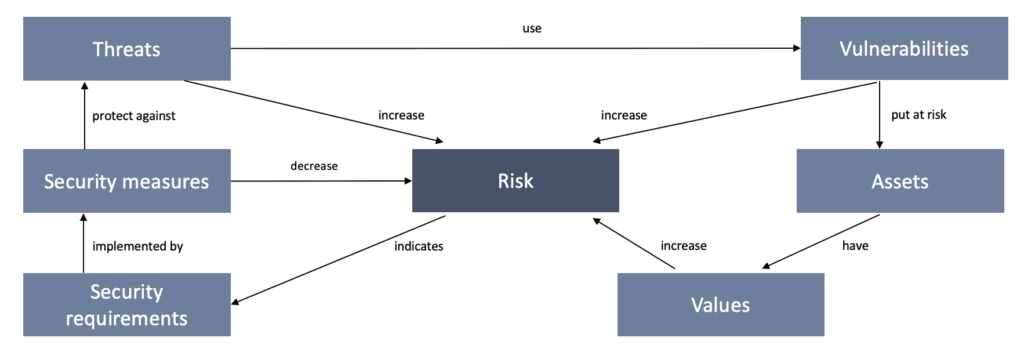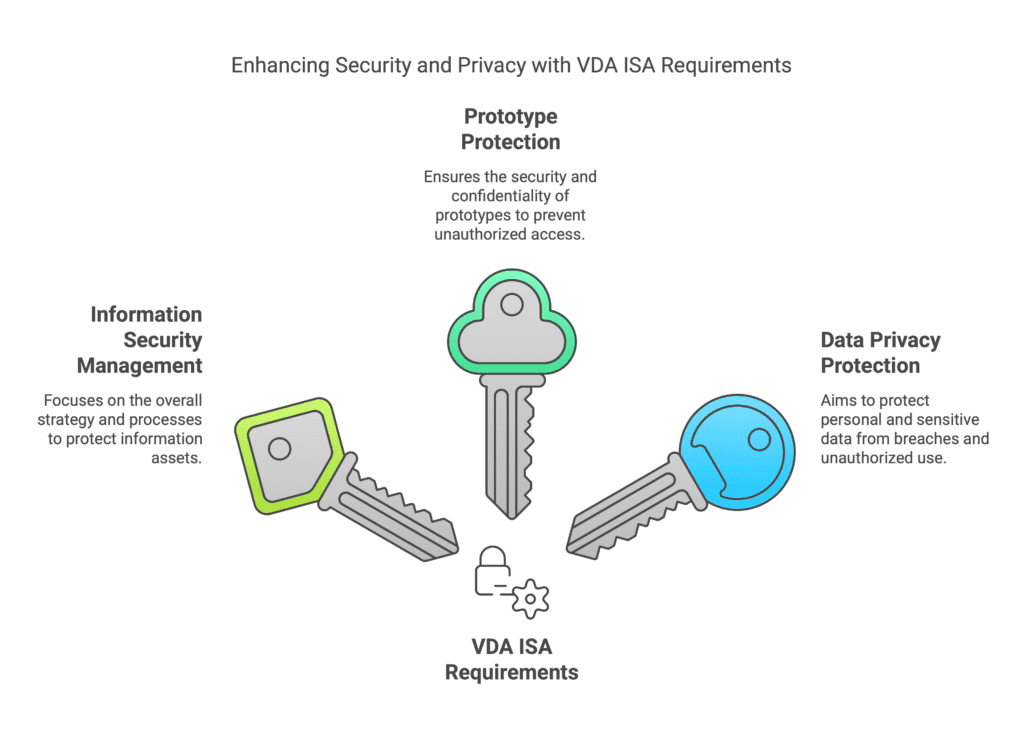VDA ISA (Information Security Assessment), stands as a foundational questionnaire tool designed to comprehensively assess information security management within the automotive industry. This robust assessment tool plays a pivotal role in evaluating and enhancing the security measures adopted by organizations operating in the automotive sector.
Nowadays, modern developments in digitization are influencing economic growth and numerous innovations around the world. New digital technologies, like artificial intelligence (AI), Big Data, and the Internet of Things (IoT), are enabling new products and services, optimizing production processes or analyzing business data.
Companies are eager to use these technologies to increase their competitiveness, improve their strategies and develop new business models. This dynamic process presents numerous benefits and challenges. Such challenges undoubtedly include information security and cybersecurity – two extremely important topics in today’s digital society.
Information Security context
Digital technologies are increasingly impacting today’s automotive industry. Quality management systems, risks, and customer expectations require suppliers to ensure secure information processing. The overarching goal has thus become to prevent information leaks, cyber-attacks, and consequently, loss of trust among customers and business partners.
Ignoring information security can lead to project failures or exploitation by competitors. Therefore, data related to modeling, testing, software, and prototypes must be protected.
The current and future direction of intelligent vehicles cannot be overlooked, as they will be vulnerable to a variety of cyber threats using Internet connectivity. Modern cars and all their interconnected systems can fall victim to cyber criminals. Taking necessary protective measures in a timely manner is another major concern.
To illustrate, some examples of security threats to modern cars include key hacking, OBD-II hacking, theft of stored personal data in the vehicle’s memory, or vulnerabilities in the car’s software provided by suppliers.
Information security has also become an integral part of quality management. The IATF 16949:2016 standard indicates the need to include cyber-attacks in risk analyses. In an era of increasing cybersecurity threats, organizations need to assess potential risks from cyber-attacks and implement effective countermeasures.

Consequently, companies are required to develop and maintain procedures for responding to information security incidents, including procedures for identifying, assessing, and responding to them. The inclusion of cybersecurity requirements in the IATF 16949:2016 standard also serves to raise awareness of risks among employees within companies.
VDA ISA – VDA Information Security Assessment
The automotive industry, through the German Association of the Automotive Industry (VDA), has attempted to define and implement a standard that would address the specific need for information security for the field. The questionnaire, crafted through collaborative efforts of experts, is specifically designed to align with the recognized information security standards prevalent in the automotive industry.
It serves as a comprehensive tool for assessing and addressing information security needs within automotive organizations.
This questionnaire comprehensively addresses the specific needs and challenges pertaining to information security in the automotive industry. The VDA ISA (VDA Information Security Assessment) worksheet serves as an assessment tool in the TISAX® standard. The questionnaire is based on the international standard ISO/IEC 27001.
The VDA ISA document helps organizations become compliant with information security requirements and gain customer trust. It supports maintaining quality and a credible business image and helps avoid potential threats.
The current version of the VDA ISA requirements (6.0.1) includes three modules of questions regarding:
- the information security management system,
- prototype protection,
- data privacy protection.

The topics covered in the questionnaire encompass various critical aspects. These include information security policy and organization, information asset management, risk and incident management, business continuity, physical security, and supplier management.
The list is extensive and requires reading and interpretation. Implementing them correctly within the organization is crucial.
VDA ISA – Is your organization ready for new revision?
As of April 1st, 2024, the new version of VDA ISA 6.0.1 goes into effect. In an effort to align the TISAX® requirements with new expectations, the VDA Association has expanded the questionnaire. This expansion involves several facets, such as integrating the management system’s evaluation of adverse and crisis events into business continuity plans.
Additionally, it entails the incorporation of backup utilization for enhancing data security measures.
The inclusion of IT services in the overall program underscores the importance of ensuring operational continuity for both organizational missions and critical business functions. This aspect highlights the integral role of IT in maintaining seamless operations across various functions within the organization.
The data protection module has undergone a significant redesign, resulting in clearer organization and clarification of requirements. This enhancement ensures a more streamlined and understandable framework compared to the previous version.
In conclusion, automotive companies should not delay in implementing the TISAX® standard. It will pay off with many business and image benefits and strengthen processes within the organization. Certified companies effectively attract the attention of customers and business partners by demonstrating a rigorous approach to information security.
Implementing the standard through effective security practices will improve many internal data and information protection processes. Additionally, it will minimize the impact of the risk of information security breaches or incidents.
If your organization is currently planning to implement the TISAX label, we cordially invite you to the training session TISAX – Effective Implementation for Automotive Industry.
Dariusz Kowalczyk


